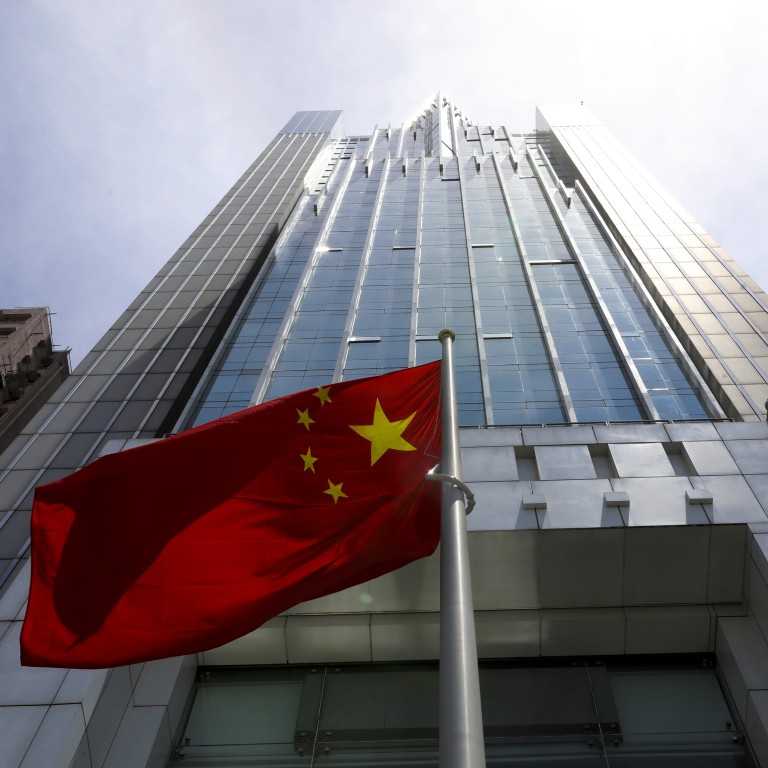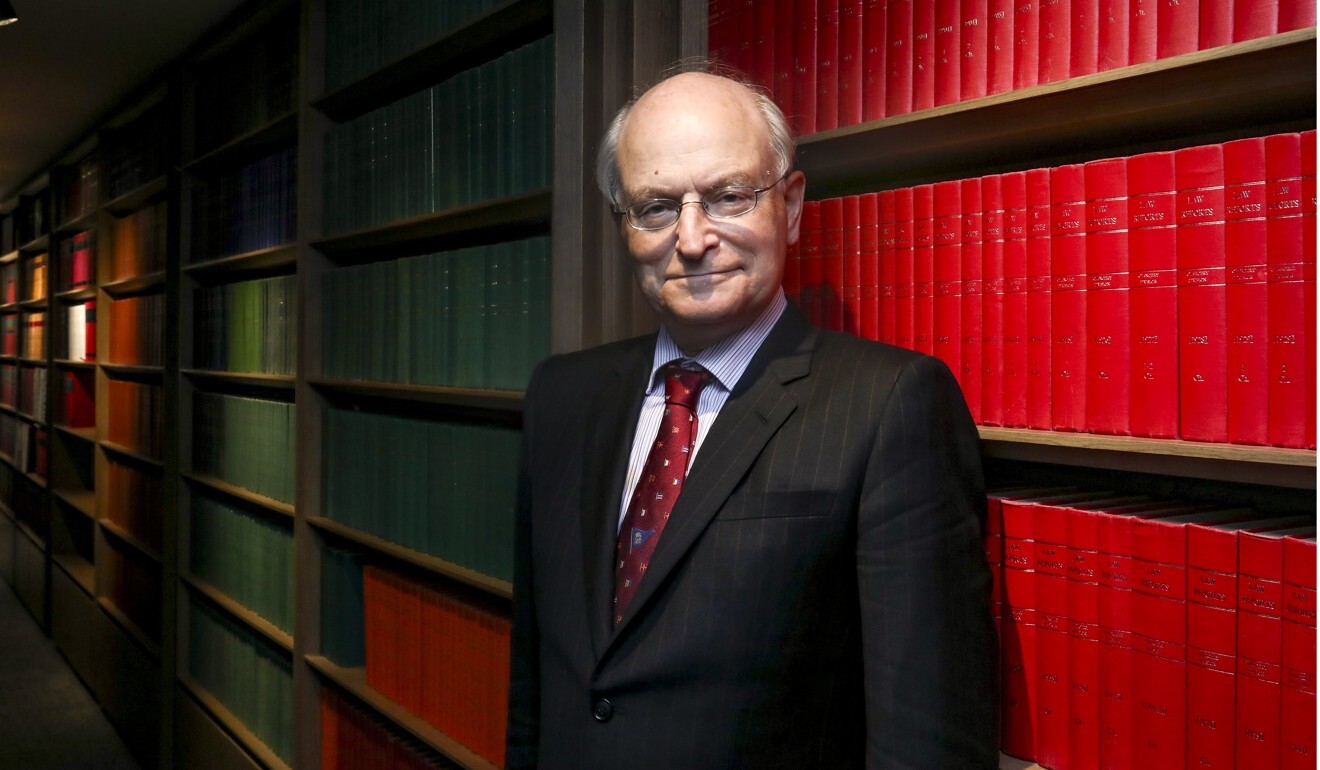
National security law: Beijing’s top agencies overseeing Hong Kong affairs blast new Bar Association chief just days after state media launch attack
- Statements from Hong Kong and Macau Affairs Office, liaison office released a week after Paul Harris was elected chairman of association
- Harris had suggested that some provisions of national security law were at odds with rights guaranteed under the city’s mini-constitution
Beijing’s two top agencies overseeing Hong Kong affairs have lashed out at the new head of the Bar Association, describing him as an anti-Communist lawyer who has challenged national sovereignty and the bottom line of the “one country, two systems” principle.
The strongly worded statements were released a week after Paul Harris, a long-time human rights barrister, was elected the new chairman of the association, succeeding Philip Dykes.

In a statement issued on Friday evening, a spokesman of the State Council’s Hong Kong and Macau Affairs Office questioned Harris’ objectives.
“Harris is hostile towards the Communist Party … He said ‘Hong Kong independence’ can be publicly discussed, and has used his British nationality to collude with foreign forces in interfering with Hong Kong affairs,” he said.
Beijing is expanding its liaison office in Hong Kong, sources say
“The national security law kicked off a process for the city to return from chaos onto the right track. He was trying to obstruct this process … and turn Hong Kong’s ‘high degree of autonomy’ to full autonomy.”
The spokesman also said the Bar Association had deviated from the role of a professional group “because it was hijacked by a minority of anti-China troublemakers”.
“It is time to make things right,” he added, without elaborating.

05:50
What you should know about China's new national security law for Hong Kong
In a separate statement, a spokesman for Beijing’s liaison office in Hong Kong accused Harris of “completely contravening professional ethics and conscience” of a lawyer.
Harris previously said he hoped that by amending the national security law, Hong Kong could convince foreign countries to reinstate extradition agreements with the city, noting the suspension of such pacts following the law’s imposition only made it easier for fugitives to move around.
But the liaison office spokesman said Harris, as a senior counsel, had to be aware that the National People’s Congress Standing Committee (NPCSC), the country’s top legislative body, had the “unquestionable and sacred power” to enact laws and promulgate them in Hong Kong.
“When social stability and people’s well-being were under serious threat, it was completely legitimate and very necessary for the NPCSC to enact the national security law,” he said.
Arrest of opposition figures intimidation, abuse of law, says new top barrister
The spokesman also accused Harris of abusing his position as Bar Association chairman to mislead the public and describing the NPCSC as a threat to the city.
“[Harris has] blatantly challenged the city’s constitutional order … national sovereignty, and the bottom line of one country, two systems.”
The liaison office also urged the Bar Association to return to its original mission of a professional body that safeguards Hong Kong’s rule of law and justice.
In response, Harris said the two statements were grossly inaccurate.
“I have never been a separatist. Ever since 1997 I have been a supporter of ‘one country, two systems’, a high degree of autonomy and the Basic Law,” he said.
“There seems to be confusion between proposing improvements to a law … and wanting to overthrow it. It is the difference between reform and revolution. I am absolutely against revolution. I am a reformer.”
Additional reporting by Jeffie Lam and Gigi Choy

